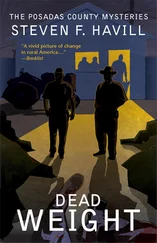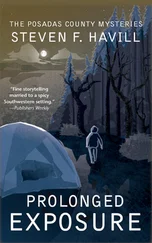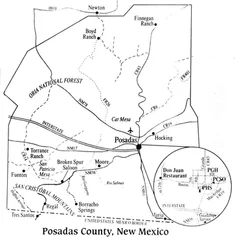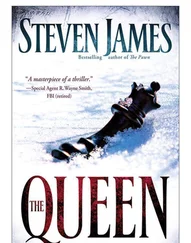Steven Dubner - Freakonomics
Здесь есть возможность читать онлайн «Steven Dubner - Freakonomics» весь текст электронной книги совершенно бесплатно (целиком полную версию без сокращений). В некоторых случаях можно слушать аудио, скачать через торрент в формате fb2 и присутствует краткое содержание. Жанр: Старинная литература, на русском языке. Описание произведения, (предисловие) а так же отзывы посетителей доступны на портале библиотеки ЛибКат.
- Название:Freakonomics
- Автор:
- Жанр:
- Год:неизвестен
- ISBN:нет данных
- Рейтинг книги:3 / 5. Голосов: 1
-
Избранное:Добавить в избранное
- Отзывы:
-
Ваша оценка:
- 60
- 1
- 2
- 3
- 4
- 5
Freakonomics: краткое содержание, описание и аннотация
Предлагаем к чтению аннотацию, описание, краткое содержание или предисловие (зависит от того, что написал сам автор книги «Freakonomics»). Если вы не нашли необходимую информацию о книге — напишите в комментариях, мы постараемся отыскать её.
Freakonomics — читать онлайн бесплатно полную книгу (весь текст) целиком
Ниже представлен текст книги, разбитый по страницам. Система сохранения места последней прочитанной страницы, позволяет с удобством читать онлайн бесплатно книгу «Freakonomics», без необходимости каждый раз заново искать на чём Вы остановились. Поставьте закладку, и сможете в любой момент перейти на страницу, на которой закончили чтение.
Интервал:
Закладка:
For the sake of argument, let’s consider the story of two boys, one white and one black.
The white boy is raised in a Chicago suburb by parents who read widely and involve themselves in school reform. His father, who has a decent manufacturing job, often takes the boy on nature hikes. His mother is a housewife who will eventually go back to college and earn a bachelor’s degree in education. The boy is happy and performs very well in school. His teachers think he may be a bona fide math genius. His parents encourage him and are terribly proud when he skips a grade. He has an adoring younger brother who is also very bright. The family even holds literary salons in their home.
The black boy is born in Daytona Beach, Florida, and his mother abandons him at the age of two. His father has a good job in sales but is a heavy drinker. He often beats the little boy with the metal end of a garden hose. One night when the boy is eleven, he is decorating a tabletop Christmas tree—the first one he has ever had—when his father starts beating up a lady friend in the kitchen. He hits her so hard that some teeth fly out of her mouth and land at the base of the boy’s Christmas tree, but the boy knows better than to speak up. At school he makes no effort whatsoever. Before long he is selling drugs, mugging suburbanites, carrying a gun. He makes sure to be asleep by the time his father come home from drinking, and to be out of the house before his father awakes. The father eventually goes to jail for sexual assault. By the age of twelve, the boy is essentially fending for himself.
You don’t have to believe in obsessive parenting to think that the second boy doesn’t stand a chance and that the first boy has it made. What are the odds that the second boy, with the added handicap of racial discrimination, will turn out to lead a productive life? What are the odds that the first boy, so deftly primed for success, will somehow fail? And how much of his fate should each boy attribute to his parents?
One could theorize forever about what makes the perfect parent. For two reasons, the authors of this book will not do so. The first is that neither of us professes to be a parenting expert (although between us we do have six children under the age of five). The second is that we are less persuaded by parenting theory than by what the data have to say.
Certain facets of a child’s outcome—personality, for instance, or creativity—are not easily measured by data. But school performance is. And since most parents would agree that education lies at the core of a child’s formation, it would make sense to begin by examining a telling set of school data.
These data concern school choice, an issue that most people feel strongly about in one direction or another. True believers of school choice argue that their tax dollars buy them the right to send their children to the best school possible.
Critics worry that school choice will leave behind the worst students in the worst schools. Still, just about every parent seems to believe that her child will thrive if only he can attend the right school, the one with an appropriate blend of academics, extracurriculars, friendliness, and safety.
School choice came early to the Chicago Public School system. That’s because the CPS, like most urban school districts, had a disproportionate number of minority students. Despite the U.S. Supreme Court’s 1954 ruling in Brown v. Board of Education of Topeka, which dictated that schools be desegregated, many black CPS students continued to attend schools that were nearly all-black. So in 1980
the U.S. Department of Justice and the Chicago Board of Education teamed up to try to better integrate the city’s schools. It was decreed that incoming freshmen could apply to virtually any high school in the district.
Aside from its longevity, there are several reasons the CPS school-choice program is a good one to study. It offers a huge data set—Chicago has the third-largest school system in the country, after New York and Los Angeles—as well as an enormous amount of choice (more than sixty high schools) and flexibility.
Its take-up rates are accordingly very high, with roughly half of the CPS students opting out of their neighborhood school. But the most serendipitous aspect of the CPS program—for the sake of a study, at least—is how the school-choice game was played.
As might be expected, throwing open the doors of any school to every freshman in Chicago threatened to create bedlam. The schools with good test scores and high graduation rates would be rabidly oversubscribed, making it impossible to satisfy every student’s request.
In the interest of fairness, the CPS resorted to a lottery. For a researcher, this is a remarkable boon. A behavioral scientist could hardly design a better experiment in his laboratory. Just as the scientist might randomly assign one mouse to a treatment group and another to a control group, the Chicago school board effectively did the same. Imagine two students, statistically identical, each of whom wants to attend a new, better school. Thanks to how the ball bounces in the hopper, one goes to the new school and the other stays behind. Now imagine multiplying those students by the thousands. The result is a natural experiment on a grand scale. This was hardly the goal in the mind of the Chicago school officials who conceived the lottery. But when viewed in this way, the lottery offers a wonderful means of measuring just how much school choice—or, really, a better school—truly matters.
So what do the data reveal?
The answer will not be heartening to obsessive parents: in this case, school choice barely mattered at all. It is true that the Chicago students who entered the school-choice lottery were more likely to graduate than the students who didn’t—which seems to suggest that school choice does make a difference. But that’s an illusion. The proof is in this comparison: the students who won the lottery and went to a “better” school did no better than equivalent students who lost the lottery and were left behind. That is, a student who opted out of his neighborhood school was more likely to graduate whether or not he actually won the opportunity to go to a new school. What appears to be an advantage gained by going to a new school isn’t connected to the new school at all. What this means is that the students—and parents—who choose to opt out tend to be smarter and more academically motivated to begin with. But statistically, they gained no academic benefit by changing schools.
And is it true that the students left behind in neighborhood schools suffered? No: they continued to test at about the same levels as before the supposed brain drain.
There was, however, one group of students in Chicago who did see a dramatic change: those who entered a technical school or career academy. These students performed substantially better than they did in their old academic settings and graduated at a much higher rate than their past performance would have predicted. So the CPS school-choice program did help prepare a small segment of otherwise struggling students for solid careers by giving them practical skills.
But it doesn’t appear that it made anyone much smarter.
Could it really be that school choice doesn’t much matter? No self-respecting parent, obsessive or otherwise, is ready to believe that. But wait: maybe it’s because the CPS study measures high-school students; maybe by then the die has already been cast. “There are too many students who arrive at high school not prepared to do high school work,” Richard P. Mills, the education commissioner of New York State, noted recently, “too many students who arrive at high school reading, writing, and doing math at the elementary level. We have to correct the problem in the earlier grades.”
Читать дальшеИнтервал:
Закладка:
Похожие книги на «Freakonomics»
Представляем Вашему вниманию похожие книги на «Freakonomics» списком для выбора. Мы отобрали схожую по названию и смыслу литературу в надежде предоставить читателям больше вариантов отыскать новые, интересные, ещё непрочитанные произведения.
Обсуждение, отзывы о книге «Freakonomics» и просто собственные мнения читателей. Оставьте ваши комментарии, напишите, что Вы думаете о произведении, его смысле или главных героях. Укажите что конкретно понравилось, а что нет, и почему Вы так считаете.











